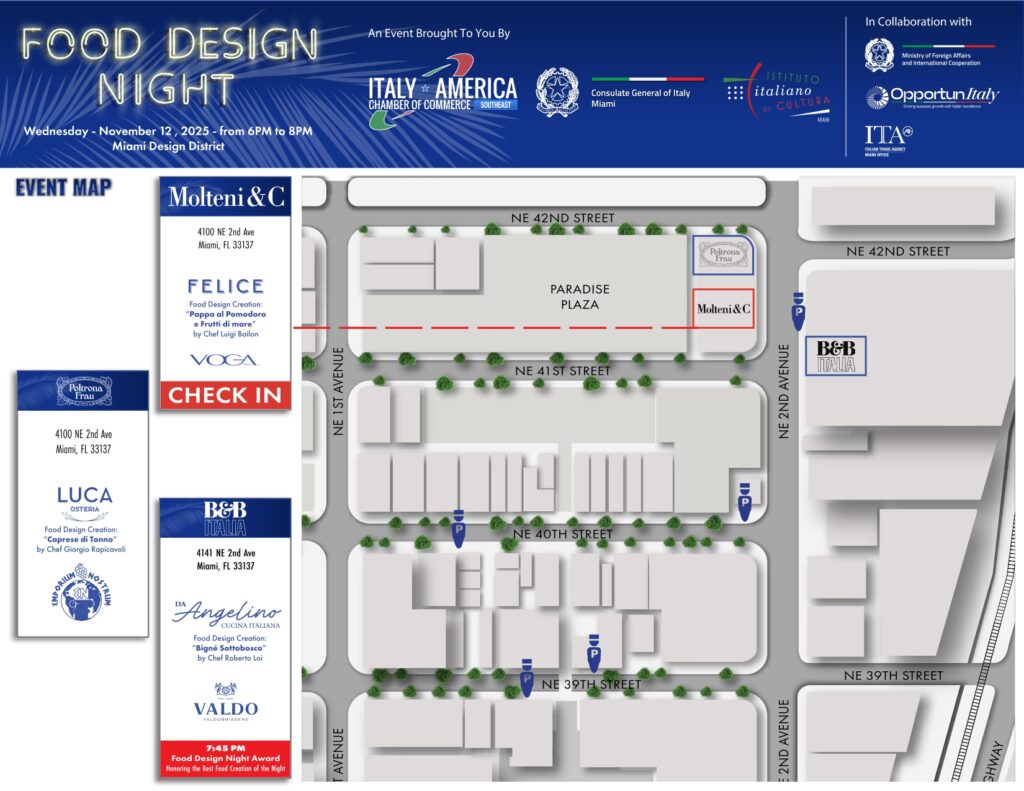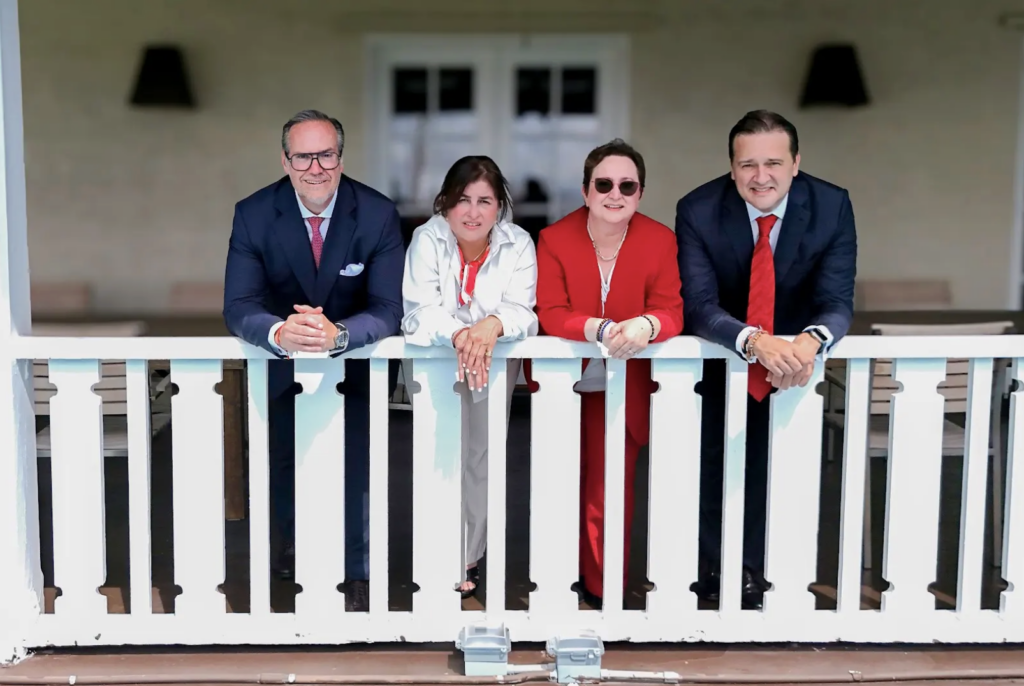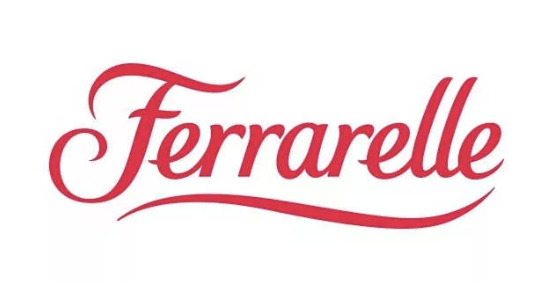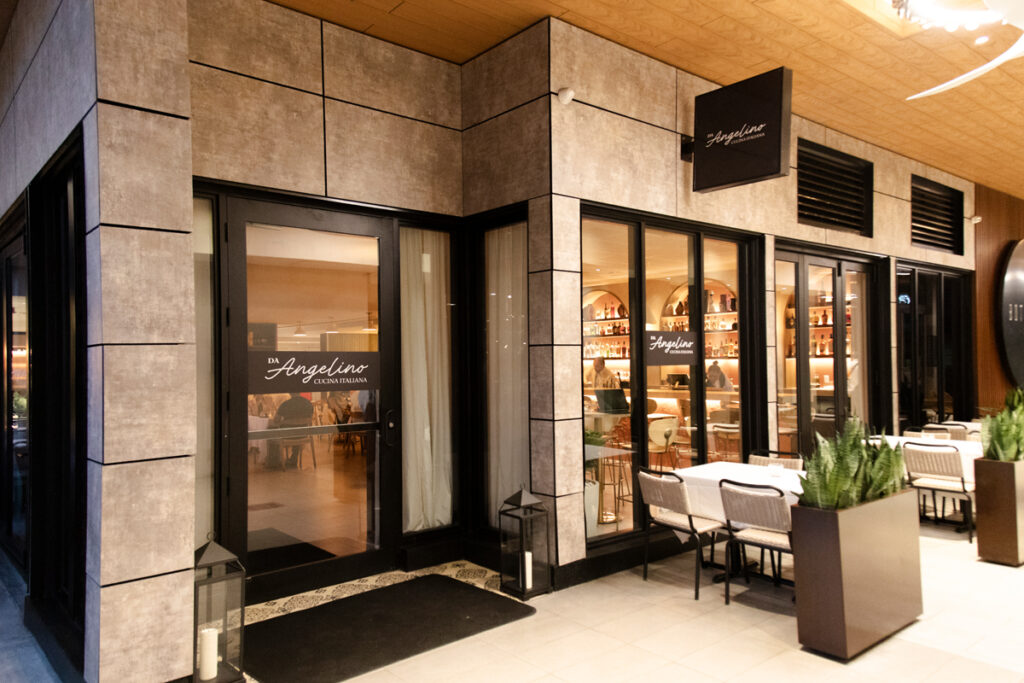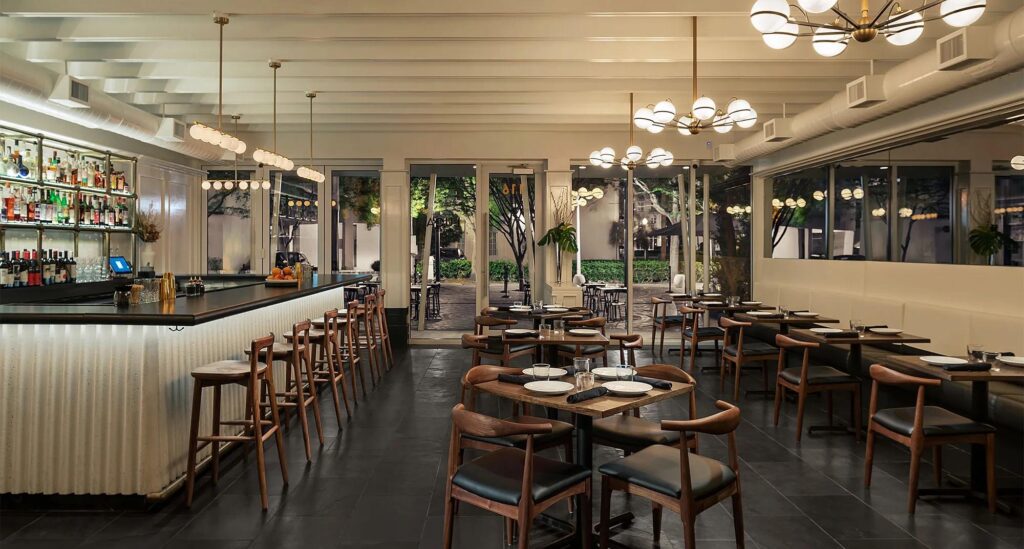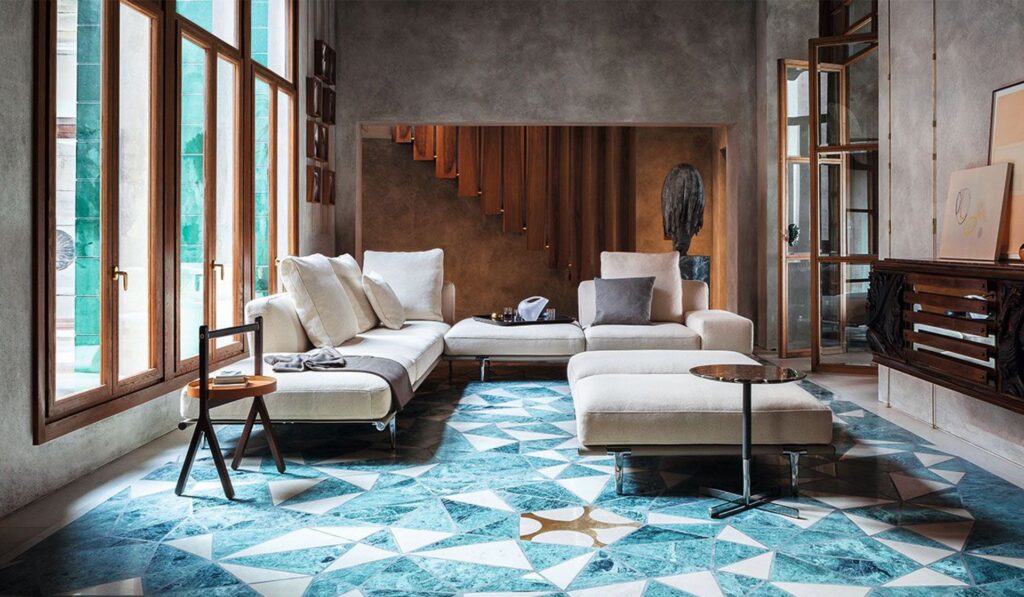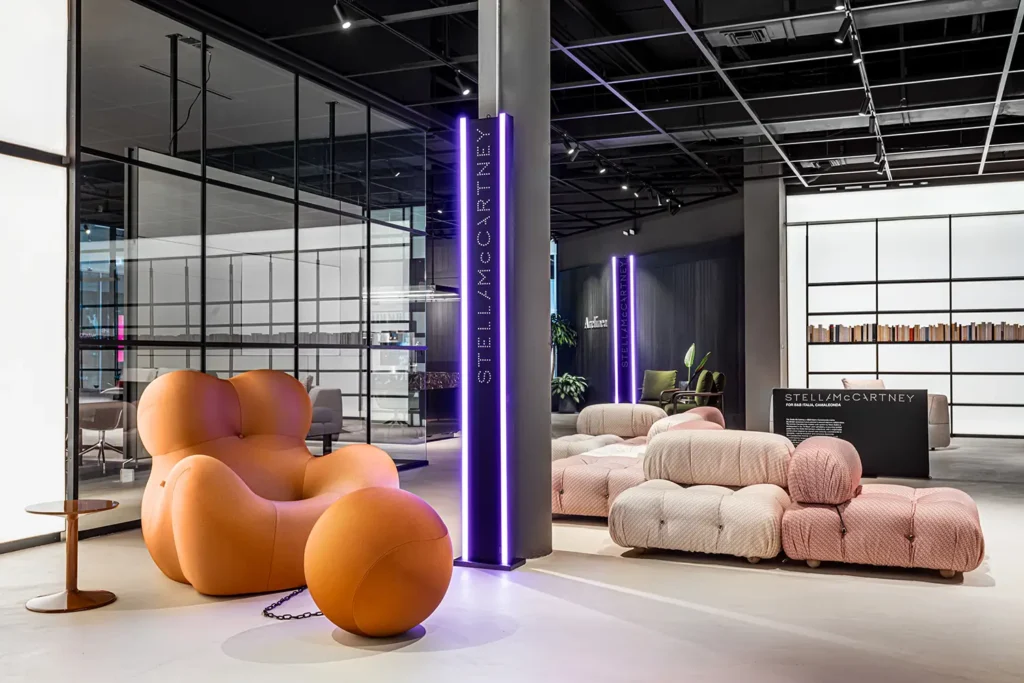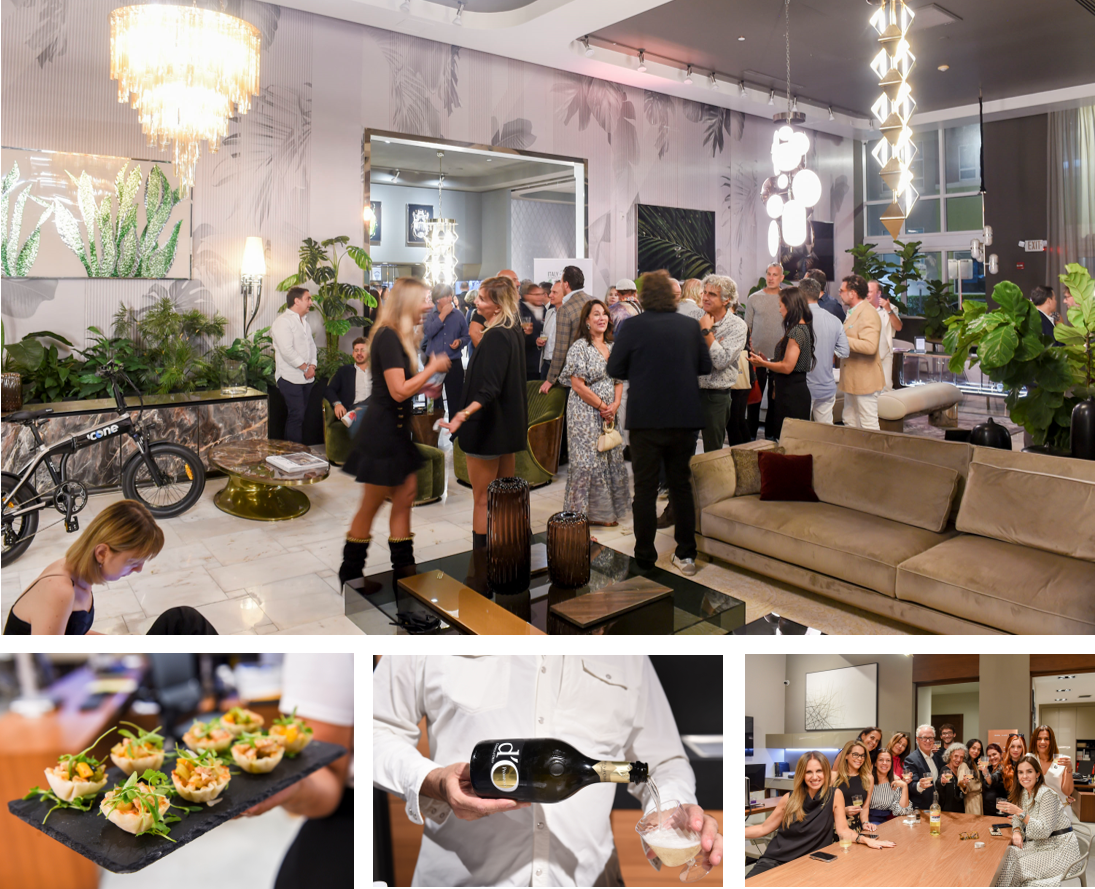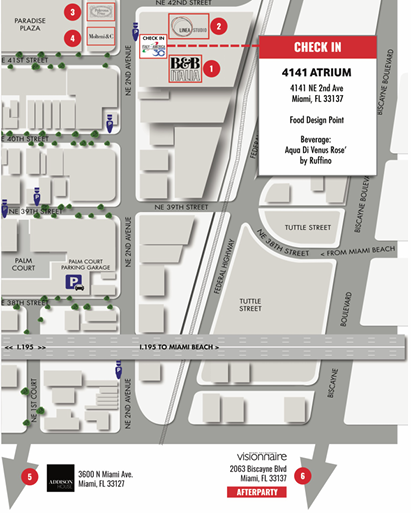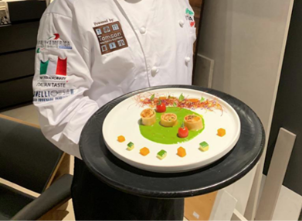An overview of the dishes presented, each showcasing the creativity and craftsmanship of Italian culinary art in dialogue with contemporary design.
Poltrona Frau
4100 NE 2nd Ave #104, Miami, FL, 33137
Featuring:
- Chef Giorgio Rapicavoli, Luca Osteria
- Food Creation: Caprese di Tonno
A Mediterranean classic reimagined with a contemporary touch. The bright sweetness of ripe tomatoes meets the clean, delicate richness of fresh tuna, brought together by fragrant basil and a whisper of extra virgin olive oil. A celebration of summer’s simplicity, lifted into something refined — light, refreshing, and effortlessly elegant. A taste of the coast, in its purest form.
- For Our Guests: Delightful hors d’oeuvres with truffle mascarpone, Luca’s truffle honey, and black winter truffle.
- Beverage: Emporium Nostrum’s wine selection
Molteni Showroom
4100 NE 2nd Ave, Miami, FL, 33137
Featuring:
- Chef Luigi Bailon, Felice Restaurant
- Food Creation: Pappa al Pomodoro e Frutti di mare
A tribute to Tuscan tradition reimagined. Pappa al pomodoro — a classic from Felice’s native Tuscany — is here elevated with a delicate touch of the sea. A warm, comforting base of tomato-scented pasta meets the briny elegance of fresh seafood, creating a dialogue between land and ocean. A single bite captures the soul of Tuscany, carried on a sea breeze.
- Beverage Partner: Voga Prosecco
- For Our Guests: Pappa al Pomodoro & Frutti di Mare – an exquisite sample of the food creation
B&B Italia
4141 NE 2nd Ave, Ste 114/115, Miami, FL, 33137
Featuring:
- Chef Roberto Loi, Da Angelino
- Food Creation: Bigne’ Sottobosco
Where nature meets refinement. Sottobosco, or “forest floor,” is more than a flavor; it’s an experience. This creation plays on contrasts and harmony: the crispness of hazelnut against the creamy richness of duck mousse, the perfect blend of earthy notes of mushroom, hazelnut, and cocoa, and, finally, a delicate balance of luxury (duck, butter, truffle) with rustic simplicity (forest aromas and toasted nuts).
- Beverage: Valdo’s wine selection
- For Our Guests: Bignè Sottobosco – a refined, bite-sized interpretation of the food creation
B&B Italia
4141 NE 2nd Ave, Ste 114/115, Miami, FL, 33137
Featuring:
- Chef Roberto Loi, Da Angelino
- Food Creation: Bigne’ Sottobosco
Where nature meets refinement. Sottobosco, or “forest floor,” is more than a flavor; it’s an experience. This creation plays on contrasts and harmony: the crispness of hazelnut against the creamy richness of duck mousse, the perfect blend of earthy notes of mushroom, hazelnut, and cocoa, and, finally, a delicate balance of luxury (duck, butter, truffle) with rustic simplicity (forest aromas and toasted nuts).
- Beverage: Valdo’s wine selection
- For Our Guests: Bignè Sottobosco – a refined, bite-sized interpretation of the food creation





